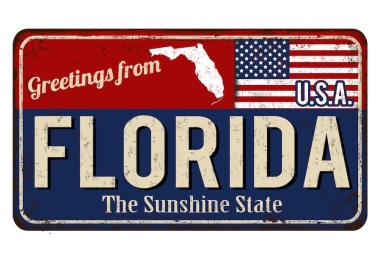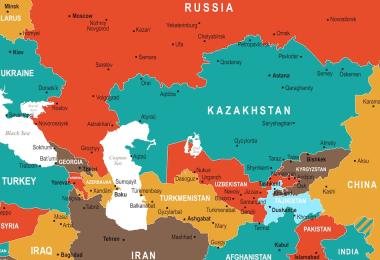It’s no secret that South African wine has finally emerged from the shadows, with any number of international authorities describing the Cape as the most exciting wine region in the world. It’s also no secret that Distell, the country’s dominant wine and spirits producer and the owner of some of the region’s most iconic brands and properties, has been missing out on a large part of the excitement. Richard Rushton, the newly appointed managing director, is acutely conscious of the need to re-think how Distell makes use of its wine assets. “Wine presents us with a massive opportunity,” he confesses. “However, we’re going to have to take some tough decisions if we’re to realise its full potential.”
The poor cousin
Over the years – as a result of the mergers out of which the group was formed – Distell acquired more properties than it could realistically manage properly. But its disinterest in wine has also been a function of the efforts it has invested in the other sectors of the business, namely spirits and ciders. The company dominates the lucrative domestic brandy trade, owning all of the proprietary and premium brands of any significance in a market worth almost 40m L annually. Add to this the fact that the relatively new cider business now contributes roughly 50% to Distell’s bottom line, and it’s easy to understand how the much more nuanced wine component simply dropped out of sight.
This was not always the case. Until Stellenbosch Farmers’ Winery (SFW) and Distillers Corporation began their merger process by way of a common shareholder arrangement back in 1979, wine had been a key element in the mix – particularly at SFW, which until then had been owned by South African Breweries (SAB). Prior to that, and benefiting from SAB’s expertise in the high-volume, big brand, popularly priced liquor market, SFW controlled and managed some extraordinary wine assets. Products like Lieberstein and Virginia may not have enjoyed a franchise outside the country’s borders, but their domestic market following made them one of the biggest wine brands in the world.
Their importance to SFW had already begun to diminish before the merger. By the mid-1980s, beer had taken over much of the blue-collar wine market. At much the same time the cider business began its seemingly inexorable upward trajectory. There was simply no reason to focus on what seemed like a fickle and increasingly fragmented wine sector.
The new broom
Rushton comes to Distell from a career which began in the pharmaceutical industry but which has largely been formed by the near two decades he spent at SAB. He joined the brewer – now the world’s second largest – as it began its international expansion, serving all this time in the international division. Stints in Botswana, India, and most recently as CEO of the South American operations saw him handling mergers and acquisitions as well marketing and operational management. On paper he has all the skills and experience necessary to streamline the Distell behemoth and also to spear-head its undoubted ambitions to become a global player. With properties in Scotch whisky (Burn Stewart) and cognac (Bisquit) as well as strategic shareholdings in Ghana and Kenya, Distell is clearly no longer willing to remain just a very large fish in the domestic market pond.
The key question on everyone’s lips in the Cape wine industry has been whether Distell is going to get in, or out, of the wine trade. As the 2014 vintage was coming into the country’s cellars, stories emerged that the company was cutting back on several of its long-standing contracts with growers. Early signs seemed to suggest that a withdrawal, rather than a further commitment, was on the cards.
“Absolutely not,” affirms Rushton. “Wine is an important component of our business and now yields pretty much the same return as our spirits business. What we need to do is to re-assess how we operate in this segment of the market and ensure we make the most of the opportunities inherent in what we have.” The rumoured cut-backs on grape-buying contracts turned out to be real enough, but were part of a wider rationalisation in which the bulk of Distell’s fruit requirements will come from fewer growers. “Producers who have been dedicated in following the prescriptions of our viticulturists have obviously been favoured. We will also be making more of our own landholdings.
We have 1,500 hectares under vine.”
There are already changes in the pipeline to achieve improved results in the wine side of the business. These include separating the sales/marketing teams of the premium ranges from the more mainstream products in order to give each their own, more specialised focus. “We have several high-volume and enormously successful popularly-priced wine brands which dominate the alcoholic beverage business in particular regions. Our challenge is to extend their franchise in the domestic market. We also need to take advantage of the platform we already enjoy elsewhere in Africa. We see this as a largely untapped wine market and it is our intention to grow into it.”
Rushton is under no illusion that this will be plain sailing, and although he observes that in other liquor industry categories consumers migrate easily between high end and popularly priced segments (craft beer and the big brands, malt whiskies and proprietary blends) this is not yet a typical pattern when it comes to wine. He is certainly conscious of the fact that the deluxe wine trade sells an experience, and that Cape offers an extraordinary opportunity to Distell – and the South African wine industry as a whole. Among the wine assets he can call upon are Nederburg (home of an auction which enjoys the same status in South Africa as the Hospices de Beaune does in France), Alto, Uitkyk, Plaisir de Merle and Durbanville Hills, as well as a host of brands which dominate every tier within the domestic wine market. These range from high-volume mainstream lines like Paarl Perlé, Autumn Harvest Crackling and Tassenberg, which sell mainly in returnable glass, the bag-in-box Cellar Cask range as well as some of the longest-lived of the country’s popular premium labels – Chateau Libertas, Grand Mousseux and Zonnebloem.
“We are going to have to narrow down our own choices,” he says with obvious regret. “We cannot afford to give all the properties the kind of investment necessary to ensure an appropriate visitor experience, and there’s no point in doing this unless it’s going to be very well done.” Cynics would argue that it’s going to take a great deal more than an effort to refine the way the sales and marketing teams work, coupled with capital investment (however substantial) on key estates. Without a mindset change this would simply enhance the gap between passionate and pedestrian performance.
Distell’s top cellars have been making some of South Africa’s best wines – and have continued to do so in the face of the artisan wine revolution of the past two decades. They have had access to fabulous vineyards, good oak, and to an array of volume brands into which any mistake could comfortably be buried. They have won competitions and awards around the globe. They just haven’t been willing – or able – to engage with the market at a level which persuades the average fine wine consumer that what is in the bottle has the same sex appeal as a carefully crafted boutique wine made by a bare-foot eccentric who (on the surface, at least, is totally dedicated to his profession.
Rushton concedes that this is an enormous problem, but not one that is unique to Distell. “Corporates tend to employ ‘communicators’ to do their speaking for them, and this separates them a crucial level from the people who want to hear what they have to say. You need an authentic voice if you are talking about authentic wine.” Those who believe that he has what it takes to bring wine back into real prominence at Distell cite his lucid grasp of what happened to take it from limelight to twilight – perhaps more than his solutions, which are still being formulated as he analyses every element of the business and design strategies accordingly.
As important as brandy?
His motivations are certainly more than mere sentiment. In the past decade, brandy has been losing ground to whisky, always an important category in South Africa but never one, until recently, to challenge brandy’s dominance of the spirits business.
However a crossover point has been reached. Brandy has now dropped over 10m L, passing these volumes over to whisky – mainly Scotch but also, to a lesser extent, Irish. Together they pretty much own the volume and value end of the spirits business. That wine is now as important to Distell as brandy is an indication more of the decline of the company’s brandy business than of the soaring fortunes of wine. However, it is also a message that nothing lasts forever, that there is a tide in every trade, and that over-reliance on cider could be as unwise as the dependence on brandy from which Distell has lately had to wean itself.
Richard Rushton is being nothing other than prudent in his decision to drive effort and investment into the company’s wine assets: it’s not impossible that in time the fruit of the vine could be Distell’s saving grace.
Distell at a glance
Formed out of the merger of Distillers Corporation and Stellenbosch Farmers’ Winery in 2000 (a process which had begun as far back as 1979), Distell is the leading producer of wines, spirits and ciders on the African continent, with annual turnovers of $1.48bn. The company employs 5,000 people and has depots throughout Southern Africa, regional offices in Kenya and Tanzania, and sales staff in Angola, Mozambique, Ghana, Nigeria, Uganda and Zambia. It has joint ventures or subsidiaries in Tanzania, Kenya, Zimbabwe, Mauritius, Botswana, Namibia and Swaziland. It also owns Burn Stewart Distillers in Scotland and Bisquit Cognac in France.
Its head office is in Stellenbosch, South Africa, and Richard Rushton has been the managing director since November 2013.








